Research Interests

- Technology-Enhanced Learning: Intelligent Textbooks, Learning Analytics, (Open) Student Modelling, Intelligent Tutoring Systems, VR-based Training Environments, Computing Education
- Intelligent Adaptive Web Applications: User Modelling, Adaptive Hypermedia, Authoring for Adaptive Systems
- Knowledge Extraction and Content Modelling: Text Analysis, Semantic Annotation, User-Generated Data
Projects
 Agency/Program
Agency/Program: Utrecht Incentive Fund / Utrechts Stimuleringsfonds Onderwijs (USO)
Duration : September 1, 2018 - August 31, 2021
Project Budget: €245 685.00
/ Our Budget: €56 304.00
Summary: THERMOS aims at creating an educational environment that supports students in making academic decisions, and improving the overall approach towards their studies. Learning analytics tools are designed and developed to inform students about their study behaviour and characterise their study experience. THERMOS also helps tutors and study advisors monitor and support students in balancing their study behaviour, experience and progress.
My Role: Leader of the Learning Analytics Work Package
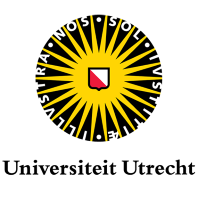 Agency/Program
Agency/Program: Utrecht Incentive Fund / Utrechts Stimuleringsfonds Onderwijs (USO)
Duration : September 1, 2015 - August 31, 2017
Project Budget: €248 846.00
/ Our Budget: €72 780.00
Summary: Traditional forms of university education treat all students uniformly. All students go through the same curriculum at the same pace, with the same learning outcomes, regardless of their diversity in background, ability and level or interests. This project makes introduces a mixture of more innovative methods such as Blended Learning and Learning Analytics into the everyday teaching practices of UU and UMC staff.
My Role: Leader of the Learning Analytics Work Package
 Agency/Program
Agency/Program: EU EACEA Erasmus+ Strategic partnership (Grant 2016-1-NL01-KA201-023022)
Duration : September 01, 2016 - August 31, 2019
Project Budget: €442 895.00
/ Our Budget: €117 410.00
Summary: Competence in mathematics has been identified at EU level as one of the key competences for personal fulfilment, active citizenship, social inclusion, and employability in the knowledge society of the 21st century. Low achievement in mathematics is a common concern for all European countries. The objective of this project is to develop flexible support for detailed diagnostics of mathematical competences of pupils, and to use this in four existing digital testing and practicing environments in mathematics education. The diagnostics summarise the knowledge, skills, and competences of a pupil, and can be used by teachers to identify underachievers. With this information, teachers can direct their attention to help pupils overcome particular difficulties. Pupils can use diagnostic reports to get an accurate understanding of their own performance and progress. Also the system itself can use the diagnostic information for adapting the environment to the level of an individual.
My Role: Contribution to domain and student modelling framework, as well as overall adaptation design
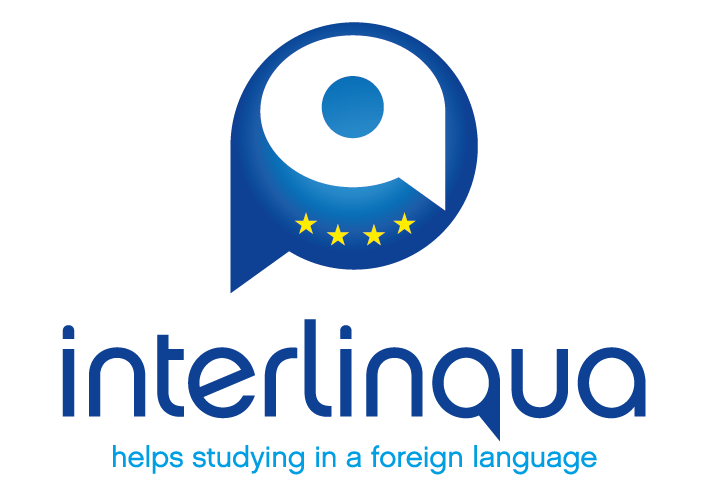 Agency/Program
Agency/Program: INTERREG IV A GR (Grant 138 GR DeLux 3 2 274)
Duration : March 01, 2014 - June 30, 2015
Project Budget: €834 430.48
/ Our Budget: €273 731.52
Summary: Increasing numbers of European students enrol in formal (and informal) courses taught in a foreign language. From the socioeconomic perspective, EU promotes ever-growing mobility, especially when it comes to younger population (see, e.g., the "Youth on the Move" initiative and Bologna Process). From the pedagogical (and technological) perspective, new forms of learning (such as Open Educational Resources - OER and Massive Open Online Courses - MOOC) are emerging supported by new Information and Communication Technologies - ICT. For an individual foreign student who is trying to take advantage of these new learning opportunities a new set of challenges emerge. Studying a course from an unfamiliar university/program is difficult enough, but the difficulties multiply when the transition to the new course requirements is aggravated by the necessity to learn material in a foreign language, different from the language use for teaching them the course prerequisites. The main goal of this project is to organize a scalable solution to the problem of practical support for individual students studying in a foreign (FR/DE/EN) language. This goal is being achieved by means of an innovative e-learning technology providing students with relevant supplementary learning material in their mother tongue.
My Role: Primary investigator
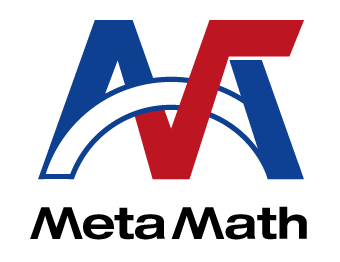 Agency/Program
Agency/Program: Tempus IV Call 6 (Grant 543851-TEMPUS-1-2013-1-DE-TEMPUS-JPCR)
Duration : December 01, 2013 - November 30, 2016
Project Budget: €1 144 862.55
/ Our Budget: €221 149
Summary: The project is aimed at raising the quality of STEM education in Russia by modernizing and improving the curricula in the field of Mathematics. A fundamental revision of math studies in all Russian universities offering degrees in STEM is conducted. The consistency of the math curricula with the Bologna principles and best European standards is verified. The content and teaching methods are modernized through introduction of blended learning and e-learning technologies. The major project activities include:
- Comparative Case Studies bringing together best European and national practices in teaching Math within STEM curricula.
- Modernization of Math & Statistics component of selected STEM curricula.
- Localization and deployment of the Math-Bridge online platform for mathematical courses in several Russian universities.
My Role: Primary investigator
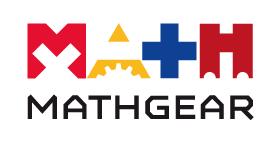 Agency/Program
Agency/Program: Tempus IV Call 6 (Grant 543868-TEMPUS-1-2013-1-DE-TEMPUS-JPCR)
Duration : December 01, 2013 - November 30, 2016
Project Budget: €1 078 292.50
/ Our Budget: €201 977.21
Summary: Mathematics is the core, fundamental subject that all Sciences, Technology, Engineering and Mathematics (STEM) curricula rely upon. The quality of math education is one of the most important elements of technological modernization and economic reforms. Despite a well-known conservatism of math education, the application of new educational technologies can radically improve the quality of learning outcomes. The overall objective of the project is to improve STEM education in South Caucasian region by modernizing Mathematical curricula and applying new e-Learning technologies. The project activities will include overall refactoring of the way math studies are organized in target Georgian and Armenian universities offering degrees in STEM and ensuring the consistency of the math curricula with the Bologna principles and best European standards. The instructional content and teaching methods will be revised and principles of blended learning and e-learning will be introduced.
My Role: Primary investigator
 Agency/Program
Agency/Program: BMBF Software Campus Program (Grant 01IS12050)
Duration : March 01, 2013 - February 28, 2015
Project Budget: €104 918
/ Our Budget: €104 918
Summary: Effective child pedestrian safety education, requires children to train their knowledge and skills in real traffic situations. Real roadside training is problematic due to the budget and safety concerns. This project proposes an alternative - training children in a virtual reality (VR) environment equipped with the capabilities of an intelligent tutoring system. This is a PhD student project. Its primary investigator is
Yecheng Gu.
My Role: Research adviser
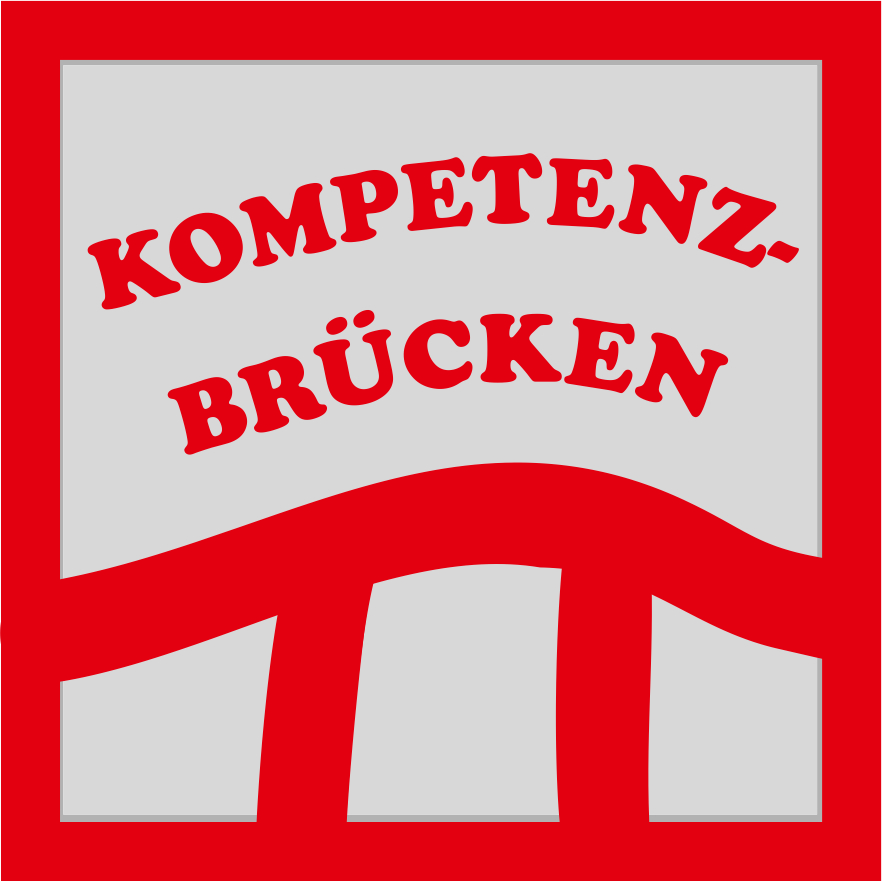 Agency/Program
Agency/Program: European Regional Development Fund
Duration : January 01, 2012 - June 30, 2014
Project Budget: €585 633
/ Our Budget: €218 625
Summary: Students enrolling in Computer Science and Engineering University programs are often struggling with understanding the requirements of their new programs. Core subjects, such as Mathematics often become the first and most important obstacle for them. In Fachhochschule Brandenburg, as the result of this development very high drop-out rates have been recorded in recent years within or after the first semester. The Kompetenzbrücken project addresses this problem. In is a joint project between the team of Prof. Mündemann from the Department of Informatics and Media at Fachhochschule Brandenburg and the team of Dr. Sosnovksy from the Centre for e-Learning Technology at DFKI. The Math-Bridge e-Learning platform for bridging courses will be used in Fachhochschule Brandenburg to identify the most problematic competencies of freshman students and help them to overcome their knowledge gaps.
My Role: Primary co-investigator
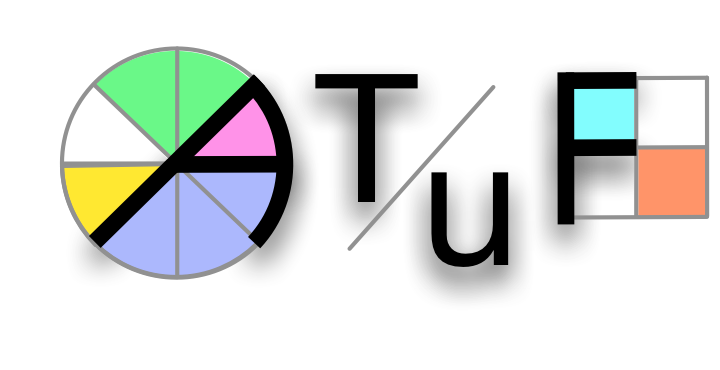 Agency/Program
Agency/Program: DFG (Grant
NA 738/10-1)
Duration : April 01, 2011 - March 31, 2013
Project Budget: €359 000
/ Our Budget: €179 500
Summary: The objectives of the project ATuF are the development and the empirical evaluation of adaptive and tutorial feedback components (ATuF components) and strategies. In the first phase of ATuF, apart from domain analysis and representation, we have investigated parts of the user modeling and of the diagnosis of errors. Furthermore we have developed ATuF components and examined their effects within exercises with typical errors while conducting first experiments. In the second phase we are investigating the following empirical and technological requirements for the adaptation of feedback and first forms of the real adaptation: (a) the effects of ATuF components and strategies depending on the characteristics of the exercises and the learners; (b) manual and automatic analysis/ data mining of the log files from the experiments; (c) empirically sustained and extended user modeling as basis for the adaptation of feedback; (d) extension of the competence, diagnosis as well as diagnosis of motivational and other variables; (e) empirical investigations of various dimensions of the feedback adaptation; (f) adaptation of the feedback strategies in relation to the characteristics of the exercises and the learners; (g) evaluation of the developed adaptation dimensions; (h) empirical investigation and technical requirements for the feedback and its adaptation within various types of exercises. Working on these issues is done using an interdisciplinary approach and the learning platform ActiveMath within ATuF.
My Role: Primary co-investigator
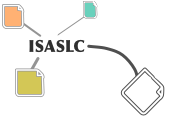 Agency/Program
Agency/Program: EU FP7 People Programme (Grant
PIIF-GA-2009-255049)
Duration : July 01, 2010 - December 31, 2012
Project Budget: €217 782
/ Our Budget: €217 782
Summary: The ultimate goal of the ISASLC project is to advance the state of the art in the field of authoring technologies for intelligent tutoring systems (ITS). Content and knowledge creation for ITS is a very complex procedure that requires considerable time investment and is especially demanding from the point of participating authors' expertise. This problem has long hindered the dissemination and adoption of adaptive and intelligent technologies in e-Learning. Its solution has not been possible before. But now, with recent advancements in Artificial Intelligence and Human-Computer Interaction, and corresponding development of new Web technologies we might have just enough tools and resources to take the next step towards solving this problem. The ISASLC project attempts to take this step by relying on the methods from such fields as Social Computing, Semantic Web, and Data Mining. From the practical perspective, ISASLC seek to widen the population of potential ITS authors by providing aid to inexperienced authors when it comes to error-prone and expertise-demanding authoring tasks, such as new content creation, metadata authoring, interactivity authoring, error detection and quality control. The R&D activity within ISASLC is divided into five work-packages: (1) Interactivity authoring support; (2) Collaborative authoring support; (3) Metadata authoring support; (4) Gap detection; (5) Open-corpus content discovery.
My Role: Primary investigator.
 Agency/Program
Agency/Program: US Dept. of Education (Grant
R305A090460)
Duration : September 01, 2009 - August 31, 2012
Project Budget: $1 302 928
/ Our Budget: $315 036
Summary: Helping students to have a stronger conceptual understanding of mathematics is a major goal of K-12 instruction in the United States. Results of national and international assessments unfortunately show that while U.S. students perform adequately on applying procedures for standard computations, they have difficulty in problem solving that requires meta-cognitive strategies. Additionally, students in American schools consistently perform much worse in mathematics than their counterparts in many other countries. The AdaptErrEx project addressed this issue by presenting students with problems and problem solving techniques that fall outside the classroom norm. In particular, the intention was to present students with interactive erroneous examples of mathematical problems-step-by-step demonstrations of problem-solving in which one or more of the steps are incorrect. Erroneous examples are rarely used in classrooms because mathematics teachers are concerned that discussing errors may be embarrassing or make students more likely to make those errors, in behaviorist fashion. Very few empirical studies have tested the pedagogical value of erroneous examples, and no studies have explored adaptive presentation of such examples (e.g., presenting erroneous examples when a student is ready, withholding when not, providing help only when needed). The AdaptErrEx project has advanced the state of the art by developing technologies and materials to support learning of decimals through erroneous examples. In particular, it explored the learning outcomes of personalized sequencing of erroneous examples.
My Role: Leader of the personalization work package.
 Agency/Program
Agency/Program: EU eContent
plus (Grant
ECP-2008-EDU-428046)
Duration : May 01, 2009 - January 31, 2012
Project Budget: $3 599 964
/ Our Budget: €1 425 413
Summary: Many students enrolling into European colleges and universities lack mathematical competencies necessary for their studies, especially, in math-intensive engineering and science disciplines. This often leads to serious learning problems, and even causes students to drop out of their learning programs. The Math-Bridge project has addressed this problem by applying a range of techniques from the fields of Intelligent Tutoring Systems, Adaptive Hypermedia, Semantic Web and TEL. The result of these efforts is the e-Learning platform for bridging courses with a number of unique features. It provides access to the largest in the World collection of multilingual, semantically annotated learning objects (LOs) for remedial mathematics. It models students' knowledge and applies several adaptation techniques to support more effective learning, including personalized course generation, intelligent problem solving support and adaptive link annotation. It facilities a direct access to LOs by means of semantic search. It provides rich functionality for teachers allowing them to manage students, groups and courses, trace students' progress with the reporting tool, create new LOs and assemble new curricula. Math-Bridge offers a complete solution for organizing technology-enhanced learning (TEL) of mathematics on individual-, course- and/or university level.
My Role: Primary investigator.
 Personalized Exploratorium for Database Courses
Personalized Exploratorium for Database Courses (NSF grant
DUE-0633494)
Summary: Structured Query Language (SQL) is the most widely used multipurpose database language. Extensive knowledge and fluency in SQL is mandatory in mastering modern database technologies. This project has developed an innovative suite of tools that allow Information Science students to acquire practical SQL skills through the use of adaptive and interactive learning activities.
My Role: Systems design, development and evaluation, knowledge engineering, experiment design, statistical analysis.
 Personalized Access to Open Corpus Educational Resources through Adaptive Navigation Support and Adaptive Visualization
Personalized Access to Open Corpus Educational Resources through Adaptive Navigation Support and Adaptive Visualization (NSF Grant
0447083)
Summary: The volume of educational resources available to students is rapidly increasing. The abundance of resources has created the need to provide personalized access to educational resources, i.e., to help students find, organize, and use resources that match their individual goals, interests, and current knowledge. This project answers that need by developing and exploring a broad range of innovative techniques for personalized access to open corpus educational resources. Among these techniques are adaptive navigation support and adaptive visualization techniques, which offer a higher level of interactivity and expressive power and take into account not only the users' interests, but also their current knowledge and goals.
My Role: Systems design, development and evaluation, knowledge engineering, experiment design, statistical analysis.
 Individualized Exercises for Assessment and Self-Assessment of Programming Knowledge
Individualized Exercises for Assessment and Self-Assessment of Programming Knowledge (NSF grant
7525)
Summary: This project systematically explores the use of individualized questions and exercises in the context of programming-related courses. A set of innovative tools for assessment and self-assessment of student's knowledge has been developed and evaluated in a series of studies. The project has extended the understanding of the role and place of individualized questions and exercises as an educational tool in programming courses.
My Role: Systems design, development and evaluation, knowledge engineering, experiment design, statistical analysis.
Professional Service

Curriculun Vitae

- 2016-now: Assistant Professor of Software technology for learning and teaching at the Department of Information and Computing Sciences, Utrecht University (Utrecht, the Netherlands)
- 2014-2016: Principal Researcher, Project Manager, Lecturer at the School of Education, Saarland University (Saarbrücken, Germany)
- 2012-2014: Principal Researcher, Head of the Intelligent e-Learning Technology Lab at CeLTech, German Research Center for Artificial Intelligence (Saarbrücken, Germany)
- 2010-2012: Marie Curie Senior Research Fellow at the German Research Center for Artificial Intelligence (Saarbrücken, Germany)
- 2009-2010: Researcher at the ActiveMath group, Department of Computer Science, Saarland University (Saarbrücken, Germany)
- 2002-2011: PhD student at the School of Information Sciences, University of Pittsburgh (Pittsburgh, PA, USA); Thesis: "Ontology-based Open-Corpus Personalization for e-Learning" (Adviser: Peter Brusilovsky)
- 1999-2002: Research assistant and instructor in Kazan State Technological Univerisity, Kazan State Technical University and Institute of Mathematics and Mechanics (Kazan, Russia)
- 1994-1999: Student at the Kazan State Technological Univerisity (Kazan, Russia); graduated with honor in Information Systems
The complete current version of my CV can be downloaded here: [
PDF].
















